Streaming has made music more accessible to people than at any time previously in the music industry’s history.
With traction of new music now very dependent on social media, many artists are playing the algorithm with single songs rather than bodies of work such as EP and albums which are now almost an afterthought.
While ELECTRICITYCLUB.CO.UK has always done end of year summaries around songs rather than albums, as they can best represent an annual period, the release strategy adopted by some proved frustrating for listeners. As a result, with everything now democratised and so much choice available following seemingly random patterns, promising new acts found it much harder to get noticed than 10 years ago and simply fell into the cracks of the web.
In 2024, there were albums released where 90 to 100% of the content comprised of previously released material; while the albums made sense as a journey in most cases, during the build-up, what used to be considered traditional “album tracks” were being issued as underwhelming singles that may have disappointed when listened to out of context from the main programme. Whereas the rant in the past with the plethora of different remixes available might have been “JUST GIVE ME THE VERSION THEY GOT RIGHT!”, today it is more likely to be “JUST GIVE ME THE BLOODY ALBUM!”
Then there were artists who only seemed to release single tracks with no EP or album likely, so unless a consumer had the time or the inclination to become a dedicated follower, it could be quite difficult to follow what was going on. Yes, ELECTRICITYCLUB.CO.UK may be stuck in the past as it is often accused of doing, but it simply does not embrace this bitty fragmented approach!
A straightforward list to compile, ELECTRICITYCLUB.CO.UK’s 30 SONGS OF 2024 gathers tracks available on the usual online retail platforms with a restriction of one song per artist moniker and placed in alphabetical order…
BRIGITTE BARDINI Crush
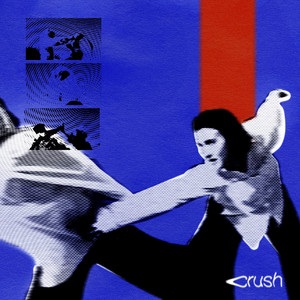 Hailing from Melbourne in Australia, Brigitte Bardini is another artist to embrace her dark side having begun as an acoustic singer songwriter. Her first venture into the dark side came with the shady gothic techno of 2023’s ‘Start A Fire’. But ‘Crush’ was more ethereal, a dreamy melancholic number expressing some bittersweet heartache where “I’ll forget about you, if you want me to”. But despite a desire to hold on, it really is all over…
Hailing from Melbourne in Australia, Brigitte Bardini is another artist to embrace her dark side having begun as an acoustic singer songwriter. Her first venture into the dark side came with the shady gothic techno of 2023’s ‘Start A Fire’. But ‘Crush’ was more ethereal, a dreamy melancholic number expressing some bittersweet heartache where “I’ll forget about you, if you want me to”. But despite a desire to hold on, it really is all over…
Available on the BRIGITTE BARDINI single ‘Crush’ via https://brigittebardini.bandcamp.com/track/crush
https://www.facebook.com/BrigitteBardiniMusic
CHARLIE Let Go
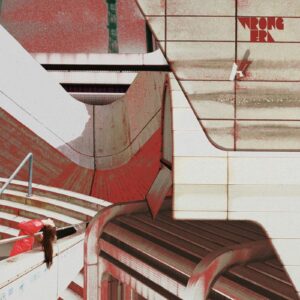 Not to be confused with the classic 1984 Italo disco track ‘Spacer Woman’ but no doubt in homage, ‘Spacewoman’ was the new EP by Berlin-domiciled DJ, musician and producer Leona Jacewska, best known by her stage name CHARLIE. Its highlight was ‘Let Go’, a thumping strobe-lit slice of dark disco saw Chicago meeting Italy in hypnotic bliss. Tonally and rhythmically, it was a sexy and sweaty number that provided an exhilarating ride.
Not to be confused with the classic 1984 Italo disco track ‘Spacer Woman’ but no doubt in homage, ‘Spacewoman’ was the new EP by Berlin-domiciled DJ, musician and producer Leona Jacewska, best known by her stage name CHARLIE. Its highlight was ‘Let Go’, a thumping strobe-lit slice of dark disco saw Chicago meeting Italy in hypnotic bliss. Tonally and rhythmically, it was a sexy and sweaty number that provided an exhilarating ride.
Available on the CHARLIE EP ‘Spacewoman’ via Wrong Era / Slow Motion
https://www.instagram.com/charlieszum/
CURSES Vanish
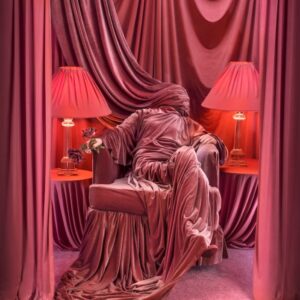 Berlin-based New Yorker Luca Venezia, better known as CURSES, joined the Italians Do It Better family in 2024. One of the highlights of the ‘Another Heaven’ album comes with the superb ‘Vanish’; this was CURSES’ own ‘Your Silent Face’ with its brightly bubbling sequencers and solemn demeanour. There was even a subtle ‘Heroes’ like quality about it as our hero declared to his love that he wanted to ”vanish with you”.
Berlin-based New Yorker Luca Venezia, better known as CURSES, joined the Italians Do It Better family in 2024. One of the highlights of the ‘Another Heaven’ album comes with the superb ‘Vanish’; this was CURSES’ own ‘Your Silent Face’ with its brightly bubbling sequencers and solemn demeanour. There was even a subtle ‘Heroes’ like quality about it as our hero declared to his love that he wanted to ”vanish with you”.
Available on the CURSES album ‘Another Heaven’ via Italians Do It Better
https://www.cursesforever.com/
MARIE DAVIDSON Sexy Clown
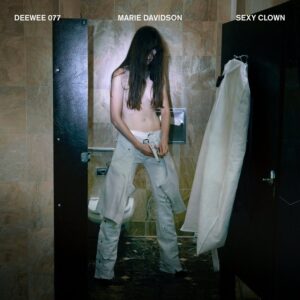 Embracing her inner clown, ‘Sexy Clown’ was a delightful slice of detached minimal synth disco from Montreal’s Marie Davidson. Off her new album ‘City of Clowns’ out in 2025 on SOULWAX’s label DeeWee, the song explored the conflicted feelings around her treatment as an outsider where vulnerability and mettle, candidness and humour struggled to co-exist in other people’s minds. But real life is all about contrasts!
Embracing her inner clown, ‘Sexy Clown’ was a delightful slice of detached minimal synth disco from Montreal’s Marie Davidson. Off her new album ‘City of Clowns’ out in 2025 on SOULWAX’s label DeeWee, the song explored the conflicted feelings around her treatment as an outsider where vulnerability and mettle, candidness and humour struggled to co-exist in other people’s minds. But real life is all about contrasts!
Available on the MARIE DAVIDSON album ‘City Of Clowns’ via https://mariedavidson.bandcamp.com/album/city-of-clowns
https://www.facebook.com/mariedavidson.official
DIE SEXUAL Need To Sin
 From out of the shadows to under the strobe lights, DIE SEXUAL are the erotically charged Los Angeles-based duo of Anton Floriano and his wife Ros. Their second EP ‘Inservio’ developed on the themes of domination and submission of their debut EP ‘Bound’. With their penetrating club-friendly sound, ‘Need To Sin’ was conceived as a tantalizing roleplay of our seemingly innocent subject submitting to their ultimate desires and hedonistic fantasies.
From out of the shadows to under the strobe lights, DIE SEXUAL are the erotically charged Los Angeles-based duo of Anton Floriano and his wife Ros. Their second EP ‘Inservio’ developed on the themes of domination and submission of their debut EP ‘Bound’. With their penetrating club-friendly sound, ‘Need To Sin’ was conceived as a tantalizing roleplay of our seemingly innocent subject submitting to their ultimate desires and hedonistic fantasies.
Available on the DIE SEXUAL album ‘Elektro Body Musique’ via https://diesexual.bandcamp.com/
https://www.instagram.com/die_sexual/
DINA SUMMER Halkidiki
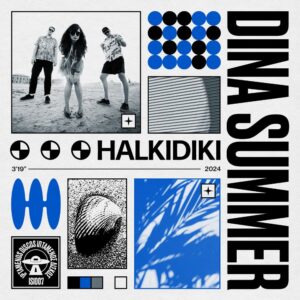 A product of Berlin, DINA SUMMER blend new wave, synthpop, dark disco, techno and Italo; although their EP ‘Hide & Seek’ embraced a cutting Mittel Europa edge, it was just a precursor to a new album ‘Girls Gang’ in 2025. Released ahead of it, ‘Halkidiki’ was an infectious electronic club tune made for sultry summery nights and named after the popular holidaying destination in Northern Greece known for its sandy beaches.
A product of Berlin, DINA SUMMER blend new wave, synthpop, dark disco, techno and Italo; although their EP ‘Hide & Seek’ embraced a cutting Mittel Europa edge, it was just a precursor to a new album ‘Girls Gang’ in 2025. Released ahead of it, ‘Halkidiki’ was an infectious electronic club tune made for sultry summery nights and named after the popular holidaying destination in Northern Greece known for its sandy beaches.
Available on the DINA SUMMER album ‘Girls Gang’ via https://dinasummer.bandcamp.com/album/girls-gang-idi021
GAVIN FRIDAY Ecce Homo
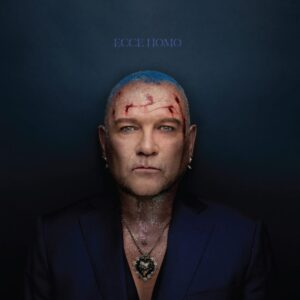 With a long gestation period, the ‘Ecce Homo’ long player started as a collaboration between Gavin Friday and Dave Ball who had first produced his band VIRGIN PRUNES on the 1986 album ‘The Moon Looked Down & Laughed’. Combining elements of synth with post-punk, the title song itself was a wonderfully deathly slice of disco gothique that sounded like Ian McCulloch meeting SOFT CELL at Berghain given an extra chill by an opera soprano sample!
With a long gestation period, the ‘Ecce Homo’ long player started as a collaboration between Gavin Friday and Dave Ball who had first produced his band VIRGIN PRUNES on the 1986 album ‘The Moon Looked Down & Laughed’. Combining elements of synth with post-punk, the title song itself was a wonderfully deathly slice of disco gothique that sounded like Ian McCulloch meeting SOFT CELL at Berghain given an extra chill by an opera soprano sample!
Available on the GAVIN FRIDAY album ‘Ecce Homo’ via BMG
HAUTE & FREDDY Anti-Superstar
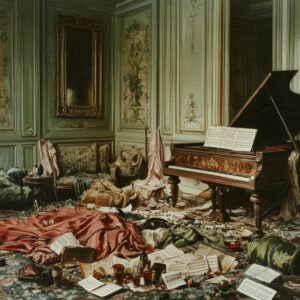 North American glam glee duo Haute & Freddy have only had two songs released but they made an impression in 2024. While ‘Scantily Clad’ was an excellent debut, the best of the pair was ‘Anti-Superstar’, a superb slice of avant synthpop with a chunky driving electronic bass triplet. There was certainly a cool wonderment about their style, sound and theatrics, making them one of the most promising new acts of the year.
North American glam glee duo Haute & Freddy have only had two songs released but they made an impression in 2024. While ‘Scantily Clad’ was an excellent debut, the best of the pair was ‘Anti-Superstar’, a superb slice of avant synthpop with a chunky driving electronic bass triplet. There was certainly a cool wonderment about their style, sound and theatrics, making them one of the most promising new acts of the year.
Available on the HAUTE & FREDDY single ‘Anti-Superstar’ via Even If
https://www.instagram.com/hauteandfreddy
HELIX Unimaginable Place
 North America’s alternative music power couple Tom Shear of ASSEMBLAGE 23 and Mari Kattman returned as HELIX. Blessed with one of the most captivating voices in electronic music, Mari Kattman was on top form with ‘Unimaginable Place’, an infectious slice of electronic pop with sparkling hooks and groovy rhythmics. Tom Shear said “I prefer to make other people dance than to dance myself. If you’ve ever seen me perform live you know why! I can’t dance to save my life”
North America’s alternative music power couple Tom Shear of ASSEMBLAGE 23 and Mari Kattman returned as HELIX. Blessed with one of the most captivating voices in electronic music, Mari Kattman was on top form with ‘Unimaginable Place’, an infectious slice of electronic pop with sparkling hooks and groovy rhythmics. Tom Shear said “I prefer to make other people dance than to dance myself. If you’ve ever seen me perform live you know why! I can’t dance to save my life”
Available on the HELIX EP ‘Unimaginable Place’ via https://helix.bandcamp.com/https://helix.bandcamp.com/
https://www.facebook.com/HelixElectronic
GENEVA JACUZZI Dry
 With a detached Eurocentric poise reminiscent of Gina X, Geneva Jacuzzi described her third album ‘Triple Fire’ “as a hit parade of wildcard synthpop and sly post-apocalyptic camp”. Brilliantly catchy, ‘Dry’ offered alluring danceable synthpop which went weirdly discordant halfway through. A commentary about dehumanisation, it highlighted the song’s lyrical gist about being ghosted following a date.
With a detached Eurocentric poise reminiscent of Gina X, Geneva Jacuzzi described her third album ‘Triple Fire’ “as a hit parade of wildcard synthpop and sly post-apocalyptic camp”. Brilliantly catchy, ‘Dry’ offered alluring danceable synthpop which went weirdly discordant halfway through. A commentary about dehumanisation, it highlighted the song’s lyrical gist about being ghosted following a date.
Available on the GENEVA JACUZZI album ‘Triple Fire’ via Dais Records
https://www.genevajacuzzi.com/
IONNALEE The End Of Every Song
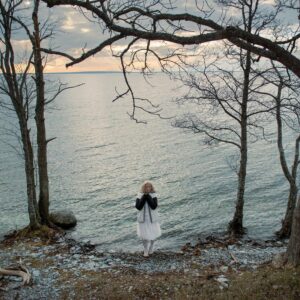 Jonna Lee returned in 2024 as IONNALEE to the electronic sound she is best known for after 2022’s more organic IAMAMIWHOAMI record ‘Be Here Soon’. This third IONNALEE long player ‘Close Your Eyes’ had the twist of having a Swedish Language twin in ‘Blund’. ‘The End Of Every Song’ surprised with a thumping rhythm and a cacophony of chunky sequences and piercing electronics, the vocals sitting brilliantly like ABBA on helium in outer space!
Jonna Lee returned in 2024 as IONNALEE to the electronic sound she is best known for after 2022’s more organic IAMAMIWHOAMI record ‘Be Here Soon’. This third IONNALEE long player ‘Close Your Eyes’ had the twist of having a Swedish Language twin in ‘Blund’. ‘The End Of Every Song’ surprised with a thumping rhythm and a cacophony of chunky sequences and piercing electronics, the vocals sitting brilliantly like ABBA on helium in outer space!
Available on the IONNALEE album ‘Close Your Eyes’ via to whom it may concern
ITALOCONNECTION Europa
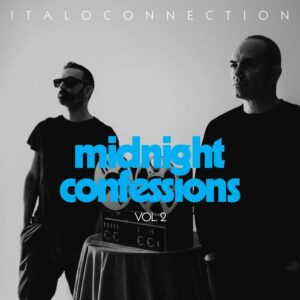 In 2021, ITALOCONNECTION issued ‘Midnight Confessions Vol1’, a record themed around love. On ‘Vol2’, there was a twist; en Français using an AI generated female voice, ‘Europa’ paid homage to the art movements and machine music of the continent in a dramatic midtempo piece accompanied by synth passages that could be Jean-Michel Jarre. KRAFTWERK, TELEX, PET SHOP BOYS, PROPAGANDA and NEW ORDER were among those getting a name check.
In 2021, ITALOCONNECTION issued ‘Midnight Confessions Vol1’, a record themed around love. On ‘Vol2’, there was a twist; en Français using an AI generated female voice, ‘Europa’ paid homage to the art movements and machine music of the continent in a dramatic midtempo piece accompanied by synth passages that could be Jean-Michel Jarre. KRAFTWERK, TELEX, PET SHOP BOYS, PROPAGANDA and NEW ORDER were among those getting a name check.
Available on the ITALOCONNECTION album ‘Midnight Confessions Vol2’ via Bordello A Parigi
https://www.facebook.com/italoconnection
JAIN Nobody Knows
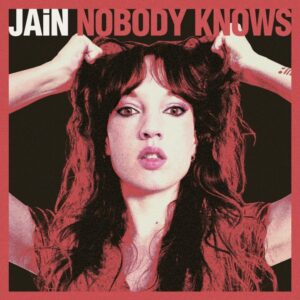 French singer Jeanne Louise Galice is more known for mixing pop with Afrobeat, but with an electronic energy and Moroder-esque throb, ‘Nobody Knows’ was very different from her previous work. With a similar lyrical disposition to Taylor Swift’s ‘I Can Do It With A Broken Heart’, where “Nobody Knows, it’s just the way I’m feeling tonight, I’ll keep on dancing, but I feel heavy-hearted”, underneath the glitterball splendour was deep sadness.
French singer Jeanne Louise Galice is more known for mixing pop with Afrobeat, but with an electronic energy and Moroder-esque throb, ‘Nobody Knows’ was very different from her previous work. With a similar lyrical disposition to Taylor Swift’s ‘I Can Do It With A Broken Heart’, where “Nobody Knows, it’s just the way I’m feeling tonight, I’ll keep on dancing, but I feel heavy-hearted”, underneath the glitterball splendour was deep sadness.
Available on the JAIN single ‘Nobody Knows’ via Spookland / Sony Music
https://www.instagram.com/jainmusic/
JULIA-SOPHIE Numb
 The long awaited debut long player from Julia-Sophie entitled ‘forgive too slow’ was a contemplative body of work as reflecting on past relationships. Lead single ‘numb’ was a marvellous avant pop set piece over a subtle rhythmic rumble with a stark haunted monologue. But then things took a frantic about turn as sung and spoken passages alternated with the growing intensity. A concluding barrage of unsettling cut-up voices highlighted her resigned state of mind.
The long awaited debut long player from Julia-Sophie entitled ‘forgive too slow’ was a contemplative body of work as reflecting on past relationships. Lead single ‘numb’ was a marvellous avant pop set piece over a subtle rhythmic rumble with a stark haunted monologue. But then things took a frantic about turn as sung and spoken passages alternated with the growing intensity. A concluding barrage of unsettling cut-up voices highlighted her resigned state of mind.
Available on the JULIA-SOPHIE album ‘forgive too slow’ via Ba Da Bing Records
https://www.facebook.com/juliasophiex0x
KALEIDA Stranger
 It looked as though KALEIDA would disband due to the pressures of parenting and the shifting patterns of life. But Christina Wood and Cicely Goulder made their long distance creative partnership work again and their reward was a third album ‘In Arms’. The glorious ‘Stranger’ sprung a surprise with 808 electro dance rhythms and a superb collage of staccato voice samples, punchy bass and great vocals that came over in a prayer-like chant.
It looked as though KALEIDA would disband due to the pressures of parenting and the shifting patterns of life. But Christina Wood and Cicely Goulder made their long distance creative partnership work again and their reward was a third album ‘In Arms’. The glorious ‘Stranger’ sprung a surprise with 808 electro dance rhythms and a superb collage of staccato voice samples, punchy bass and great vocals that came over in a prayer-like chant.
Available on the KALEIDA album ‘In Arms’ via Embassy One
KID MOXIE Ti Einai Afto Pou To Lene Agapi
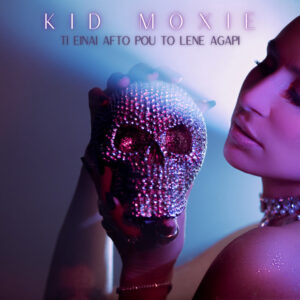 The Greek love song ‘Ti Einai Afto Pou To Lene Agapi’ was made famous when Sophia Loren sung it with Tonis Maroudas in the 1957 film ‘Boy On A Dolphin’. For 2024, KID MOXIE gave the song an emotive electronic arrangement that was both sweet and haunting. It was included in the soundtrack of the new season of Netflix drama series ‘Maestro In Blue’ which had been the first Greek television series to be included on the platform.
The Greek love song ‘Ti Einai Afto Pou To Lene Agapi’ was made famous when Sophia Loren sung it with Tonis Maroudas in the 1957 film ‘Boy On A Dolphin’. For 2024, KID MOXIE gave the song an emotive electronic arrangement that was both sweet and haunting. It was included in the soundtrack of the new season of Netflix drama series ‘Maestro In Blue’ which had been the first Greek television series to be included on the platform.
Available on the KID MOXIE single ‘Ti Einai Afto Pou To Lene Agapi’ via Minos EMI
https://www.facebook.com/kidmoxie/
KITE Glassy Eyes
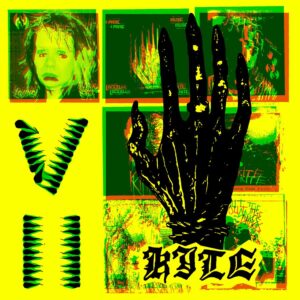 Releasing their first EP in 2008, KITE finally released their first full-length studio album on the American independent label Dais Records. As their seventh body of work and following on from the numbered series of EPs, the appropriately titled ‘VII’ contains music from their seven most recent singles released over the past seven years. Like a slice of Nordic gospel, ‘Glassy Eyes’ confronts the turmoil of existential anxiety.
Releasing their first EP in 2008, KITE finally released their first full-length studio album on the American independent label Dais Records. As their seventh body of work and following on from the numbered series of EPs, the appropriately titled ‘VII’ contains music from their seven most recent singles released over the past seven years. Like a slice of Nordic gospel, ‘Glassy Eyes’ confronts the turmoil of existential anxiety.
Available on the KITE album ‘VII’ via Dais Records
https://www.facebook.com/KiteHQ
LEATHERS Daydream Trash
 While ACTORS have been gaining increased worldwide recognition, their keyboardist Shannon Hemmett has developed her more synth focussed solo project LEATHERS in parallel. Her long awaited debut album ‘Ultraviolet’ contained romantic synthpop with sinister twists in that classic Lynchian fashion. However, ‘Daydream Trash’ was a wonderful outlier, a summer new wave tune that was “100 in the shade” and could have easily come off the soundtrack of a John Hughes film.
While ACTORS have been gaining increased worldwide recognition, their keyboardist Shannon Hemmett has developed her more synth focussed solo project LEATHERS in parallel. Her long awaited debut album ‘Ultraviolet’ contained romantic synthpop with sinister twists in that classic Lynchian fashion. However, ‘Daydream Trash’ was a wonderful outlier, a summer new wave tune that was “100 in the shade” and could have easily come off the soundtrack of a John Hughes film.
Available on the LEATHERS album ‘Ultraviolet’ via Artoffact Records
https://www.leatherstheband.com
LINEA ASPERA Mycelium
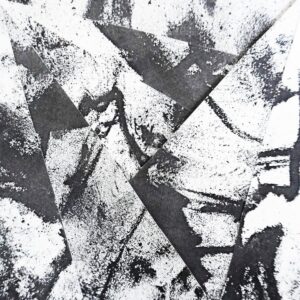 While Alison Lewis has focussed on her ZANIAS solo venture for the past few years, she was back playing live with Ryan Ambridge as LINEA ASPERA in the summer. The pair had quietly been writing and recording together with the absorbing ‘Mycelium’ being the first fruit of labour. Featuring Ambridge’s characteristic arpeggio-laden backdrop, Lewis turned to using the fuzzy mass growing on mouldy food as a metaphor for the state of a personal relationship.
While Alison Lewis has focussed on her ZANIAS solo venture for the past few years, she was back playing live with Ryan Ambridge as LINEA ASPERA in the summer. The pair had quietly been writing and recording together with the absorbing ‘Mycelium’ being the first fruit of labour. Featuring Ambridge’s characteristic arpeggio-laden backdrop, Lewis turned to using the fuzzy mass growing on mouldy food as a metaphor for the state of a personal relationship.
Available on the LINEA ASPERA single ‘Mycelium’ via https://lineaaspera.bandcamp.com/track/mycelium
https://www.facebook.com/lineaaspera
MICHEL MOERS featuring CLAUDIA BRÜCKEN Microwave
 Best known as the front man of Belgian trailblazers TELEX, in 2024 Michel Moers released what was only his second solo studio album. Recorded primarily using Logic, the songs were developed over several years. While Moers continued with his distinctive cynical surrealism, the single ‘Microwaves’ featured Claudia Brücken on lead vocals for a more straightforward slice electronic pop with solid bass and icy synth lines that came over like PROPAGANDA meeting TELEX.
Best known as the front man of Belgian trailblazers TELEX, in 2024 Michel Moers released what was only his second solo studio album. Recorded primarily using Logic, the songs were developed over several years. While Moers continued with his distinctive cynical surrealism, the single ‘Microwaves’ featured Claudia Brücken on lead vocals for a more straightforward slice electronic pop with solid bass and icy synth lines that came over like PROPAGANDA meeting TELEX.
Available on the MICHEL MOERS album ‘As Is’ via Freaksville Records
https://www.instagram.com/michelmoers/
MINUIT MACHINE Hold Me
 Now the solo project of Parisian producer and DJ Amandine Stioui, MINUIT MACHINE has been described as “disrupted, emotional, and terribly addictive”. But making a fresh restart with a clear sheet on her Instagram, ‘Hold Me’ showcased an optimistic lyrical gist and melodic drive on top of the thumping beats than had been heard in her work with previous MINUIT MACHINE creative partner Hélène De Thoury aka Hante.
Now the solo project of Parisian producer and DJ Amandine Stioui, MINUIT MACHINE has been described as “disrupted, emotional, and terribly addictive”. But making a fresh restart with a clear sheet on her Instagram, ‘Hold Me’ showcased an optimistic lyrical gist and melodic drive on top of the thumping beats than had been heard in her work with previous MINUIT MACHINE creative partner Hélène De Thoury aka Hante.
Available on the MINUIT MACHINE single ‘Hold Me’ via https://minuitmachine.bandcamp.com/track/hold-me
https://www.facebook.com/minuitmachine/
MOLCHAT DOMA Kolesom
 Now exiled from Belarus to LA, MOLCHAT DOMA brought in the dancier but still sombre sequenced pulses of classic NEW ORDER and DEPECHE MODE for their fourth album to create a more refined studio product. The magnificent ‘Kolesom’ was a glorious slice of apocalyptic electronic disco with an obvious NEW ORDER influence although Bernard Sumner never sounded this foreboding! The ominous baritone offered a commentary on the banality of modern life.
Now exiled from Belarus to LA, MOLCHAT DOMA brought in the dancier but still sombre sequenced pulses of classic NEW ORDER and DEPECHE MODE for their fourth album to create a more refined studio product. The magnificent ‘Kolesom’ was a glorious slice of apocalyptic electronic disco with an obvious NEW ORDER influence although Bernard Sumner never sounded this foreboding! The ominous baritone offered a commentary on the banality of modern life.
Available on the MOLCHAT DOMA album ‘Belaya Polosa’ via Sacred Bones
NIGHT CLUB The Lunatics (Have Taken Over the Asylum)
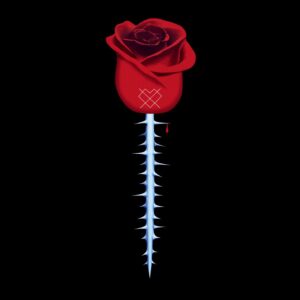 ‘Masochist’ was the highly appropriate title for the fourth NIGHT CLUB album, a dystopian prophecy that came true! Written by FUN BOY THREE in 1981 as a metaphor by to the dangerous posturing games played by “The Cowboy” Ronald Reagan during The Cold War, the inclusion of a cover of ‘The Lunatics (Have Taken Over the Asylum)’ with an even more sinister resonance was sadly relevant as the crazy orange monster was mindlessly voted back as the leader of the free world!
‘Masochist’ was the highly appropriate title for the fourth NIGHT CLUB album, a dystopian prophecy that came true! Written by FUN BOY THREE in 1981 as a metaphor by to the dangerous posturing games played by “The Cowboy” Ronald Reagan during The Cold War, the inclusion of a cover of ‘The Lunatics (Have Taken Over the Asylum)’ with an even more sinister resonance was sadly relevant as the crazy orange monster was mindlessly voted back as the leader of the free world!
Available on the NIGHT CLUB album ‘Masochist’ via Gato Blanco
https://www.facebook.com/nightclubband
NINA & RADIO WOLF My Dark
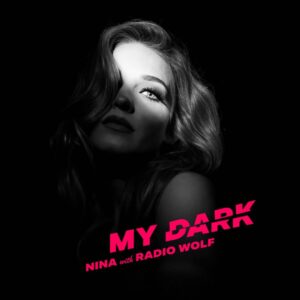 Created, recorded, produced and mixed at home in Berlin, ‘My Dark’ encapsulated a dark romantic spirit between NINA and RADIO WOLF. “I knew we’d be creating a kind of revelatory anti-love song about the dark side of relationships” said RADIO WOLF while NINA added “we both felt like creating something quite heavy and I wanted to let out my inner femme-fatale… it’s very moving as a dance track yet provocative like a sex scene in a movie”.
Created, recorded, produced and mixed at home in Berlin, ‘My Dark’ encapsulated a dark romantic spirit between NINA and RADIO WOLF. “I knew we’d be creating a kind of revelatory anti-love song about the dark side of relationships” said RADIO WOLF while NINA added “we both felt like creating something quite heavy and I wanted to let out my inner femme-fatale… it’s very moving as a dance track yet provocative like a sex scene in a movie”.
Available on the NINA & RADIO WOLF single ‘My Dark’ via https://iloveninamusic.bandcamp.com/track/my-dark
https://www.iloveninamusic.com/
https://www.radiowolfmusic.com/
PROPAGANDA Wenn Ich Mir Was Wuenschen Duerfte
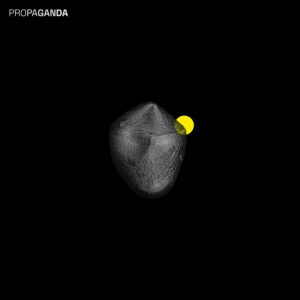 Michael Mertens and Ralf Dörper starting a new chapter of PROPAGANDA young German singer-songwriter Thunder Bae was perhaps on not on anyone’s bingo card at the start of 2024. She gave a superbly enticing performance in a haunting cover of ‘Wenn Ich Mir Was Wünschen Dürfte’ (translated into English as “If I had a wish”), a Weimar-era song written by Friedrich Hollaender in 1930 also featuring Oscar winning pianist Hauschka.
Michael Mertens and Ralf Dörper starting a new chapter of PROPAGANDA young German singer-songwriter Thunder Bae was perhaps on not on anyone’s bingo card at the start of 2024. She gave a superbly enticing performance in a haunting cover of ‘Wenn Ich Mir Was Wünschen Dürfte’ (translated into English as “If I had a wish”), a Weimar-era song written by Friedrich Hollaender in 1930 also featuring Oscar winning pianist Hauschka.
Available on the PROPAGANDA album ‘Propaganda’ via by Bureau B
R. MISSING Sleep Will Darken It
 Following a trail of sporadic singles with minimal promotional fanfare, R.MISSING have not been straightforward to follow. But with the enigmatic voice of the appropriately named Sharon Shy and the backing of Henry Frost, their alluring pop noir has been compelling when it hits the spot. Short and sharp with the air of a more electronic CHROMATICS, ‘Sleep Will Darken It’ came from their long awaited debut album.
Following a trail of sporadic singles with minimal promotional fanfare, R.MISSING have not been straightforward to follow. But with the enigmatic voice of the appropriately named Sharon Shy and the backing of Henry Frost, their alluring pop noir has been compelling when it hits the spot. Short and sharp with the air of a more electronic CHROMATICS, ‘Sleep Will Darken It’ came from their long awaited debut album.
Available on the R. MISSING album ‘Knife Shook Your Hand’ via Terminal Echo
https://www.instagram.com/r.missing/
MARIA UZOR What U Need
 “I wrote this track on a social media break as an ode to reclaiming oneself from the grasps of Musk et al” said Maria Uzor, best known previously for being a member of SINK YA TEETH with Gemma Cullingford. Self-produced with a feisty twisted energy, ‘What U Need’ was a techno anthem celebrating detox from the online world that signalled another development in her fearsome beat-laden underground.
“I wrote this track on a social media break as an ode to reclaiming oneself from the grasps of Musk et al” said Maria Uzor, best known previously for being a member of SINK YA TEETH with Gemma Cullingford. Self-produced with a feisty twisted energy, ‘What U Need’ was a techno anthem celebrating detox from the online world that signalled another development in her fearsome beat-laden underground.
Available on the MARIA UZOR single ‘What U Need’ via https://mariauzor.bandcamp.com/track/what-u-need-single
PATRICIA WOLF The Secret Lives Of Birds
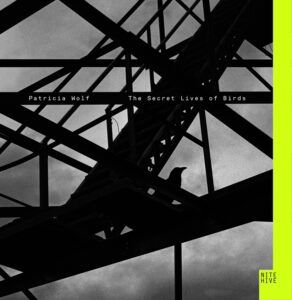 Combining modern and natural worlds, one key aspect in the music of Patricia Wolf is her use of field recordings and this shapes her new album ‘The Secret Lives of Birds’ into a soundtrack for an as-yet-unmade wildlife documentary. While the ambience is very beautiful at times, there are darker moments of angst and sadness driven by concern. Self-explanatory and with synthetic droplets simulating contact calls, ‘The Secret Lives of Birds’ title piece sets the scene.
Combining modern and natural worlds, one key aspect in the music of Patricia Wolf is her use of field recordings and this shapes her new album ‘The Secret Lives of Birds’ into a soundtrack for an as-yet-unmade wildlife documentary. While the ambience is very beautiful at times, there are darker moments of angst and sadness driven by concern. Self-explanatory and with synthetic droplets simulating contact calls, ‘The Secret Lives of Birds’ title piece sets the scene.
Available on the PATRICIA WOLF album ‘The Secret Lives of Birds’ via Nite Hive
https://www.instagram.com/patriciawolf_music/
XENO & OAKLANDER Magic Of The Manifold
 From their Connecticut laboratory bubble, the new XENO & OAKLANDER album sees a further refinement to their precise yet spirited productions. Past works have demonstrated and reinforced Liz Wendelbo and Sean McBride’s talents as the Jane Birkin and Serge Gainsbourg of synth. With an immediate rhythmic bounce, ‘Magic Of The Manifold’ is classic XENO & OAKLANDER with its squelchy bassline programming being a prominent feature.
From their Connecticut laboratory bubble, the new XENO & OAKLANDER album sees a further refinement to their precise yet spirited productions. Past works have demonstrated and reinforced Liz Wendelbo and Sean McBride’s talents as the Jane Birkin and Serge Gainsbourg of synth. With an immediate rhythmic bounce, ‘Magic Of The Manifold’ is classic XENO & OAKLANDER with its squelchy bassline programming being a prominent feature.
Available on the XENO & OAKLANDER album ‘Via Negativa (in the doorway light)’ via Dais Records
https://www.facebook.com/xenoandoaklndr
YOTA & JOHAN AGEBJÖRN Universe In Flames
 Yota is a Paris-based singer / songwriter hailing from Stockholm, while Johan Agebjörn is the Swedish producer who is best known as the instrumental half of SALLY SHAPIRO. Blending his melancholic electronic pop style to her sumptuous vocals, ‘Universe In Flames’ provides a telling global warning message. A fine mix of Scandipop, synthwave and rock with sinister twists, it showcased the best of both talents, combining classic synthpop styles with dance music.
Yota is a Paris-based singer / songwriter hailing from Stockholm, while Johan Agebjörn is the Swedish producer who is best known as the instrumental half of SALLY SHAPIRO. Blending his melancholic electronic pop style to her sumptuous vocals, ‘Universe In Flames’ provides a telling global warning message. A fine mix of Scandipop, synthwave and rock with sinister twists, it showcased the best of both talents, combining classic synthpop styles with dance music.
Available on the YOTA & JOHAN AGEBJÖRN EP ‘Universe In Flames’ is released by Keytar Records
https://www.instagram.com/yota_official_artist/
https://www.instagram.com/johan.agebjorn/
ELECTRICITYCLUB.CO.UK’s 2024 playlist ‘The Great Bleep Forward’ containing over 230 tracks from the year can be listened to on Spotify at https://open.spotify.com/playlist/4xMrAkCbeWvUmTfrN6i6Gu
Text by Chi Ming Lai
13th December 2024

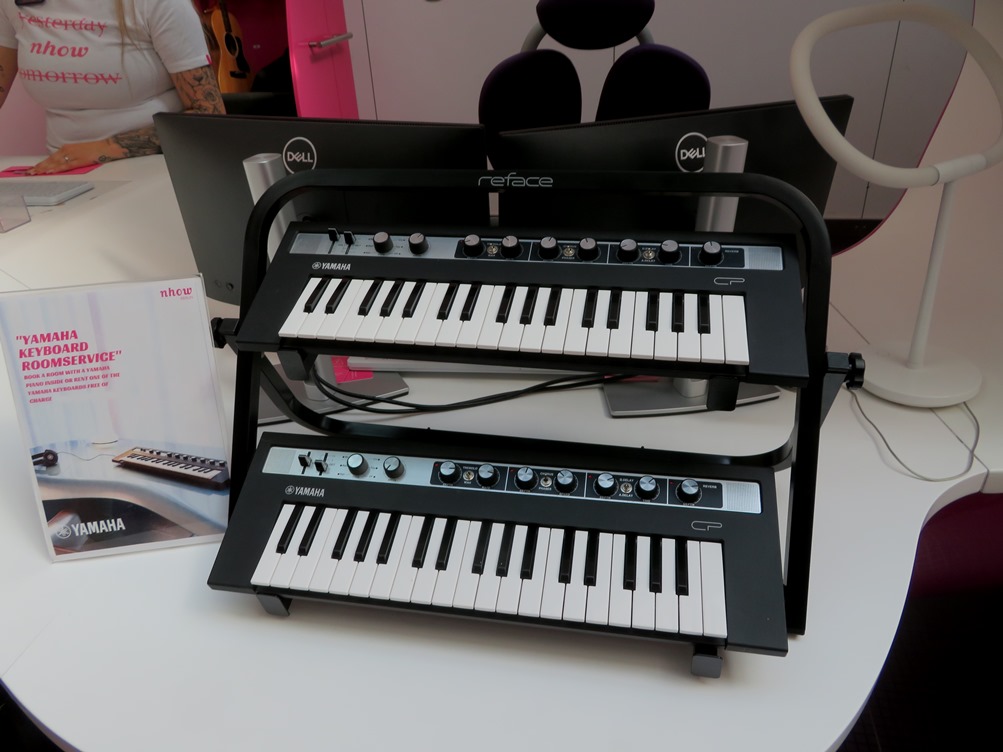
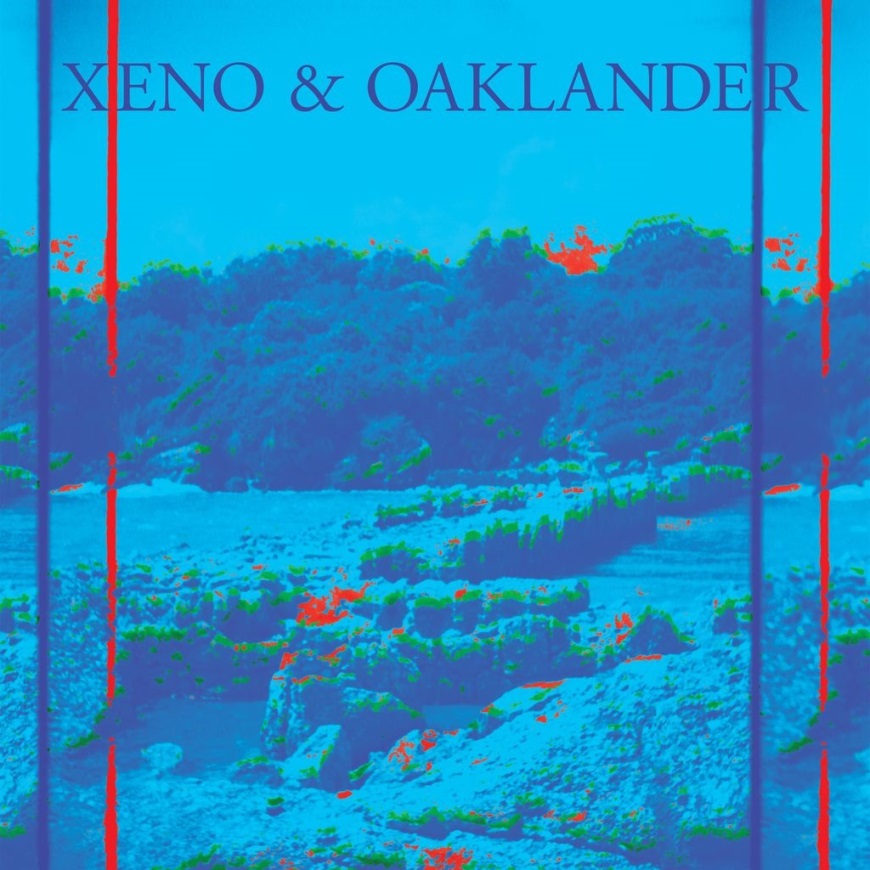
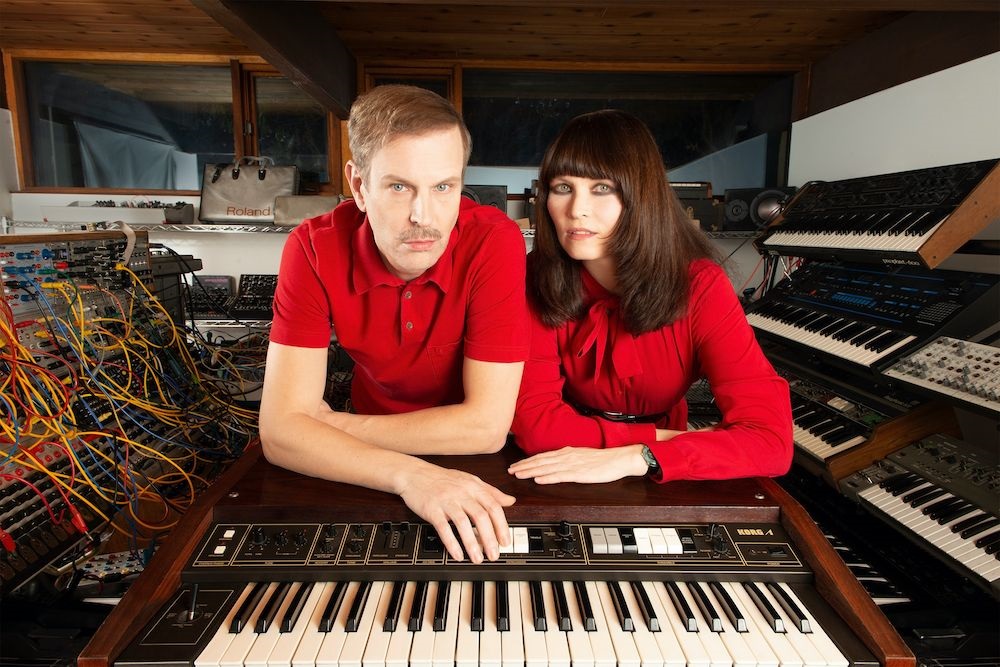
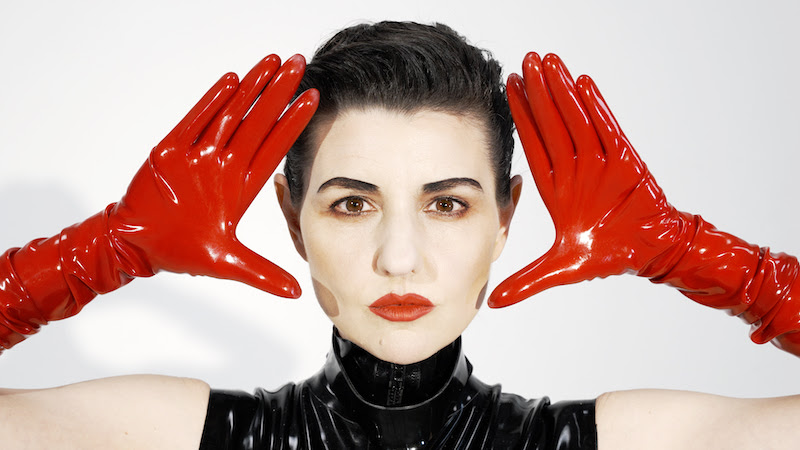

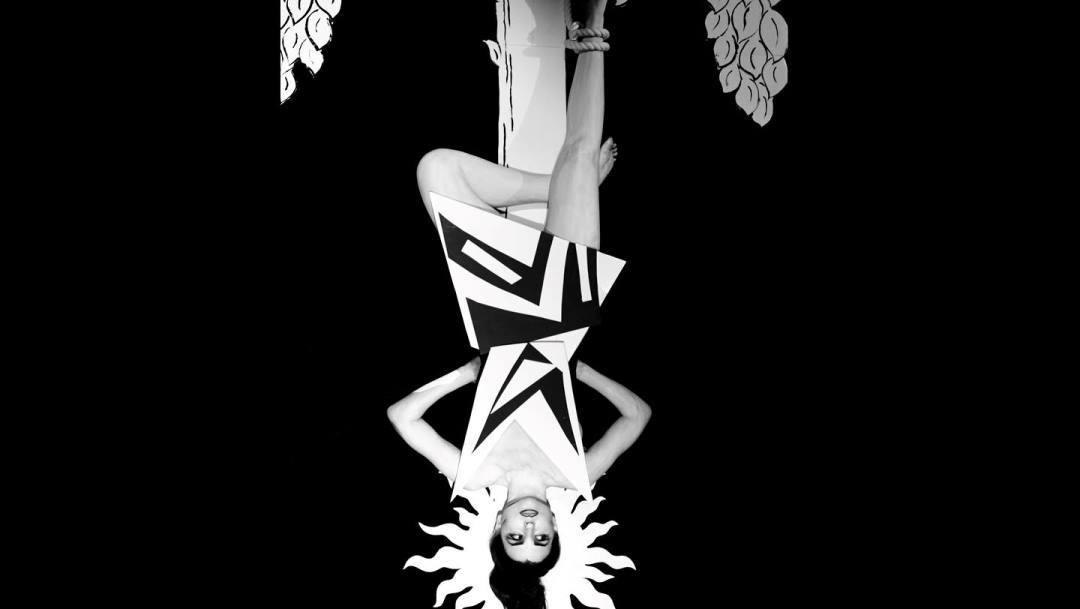

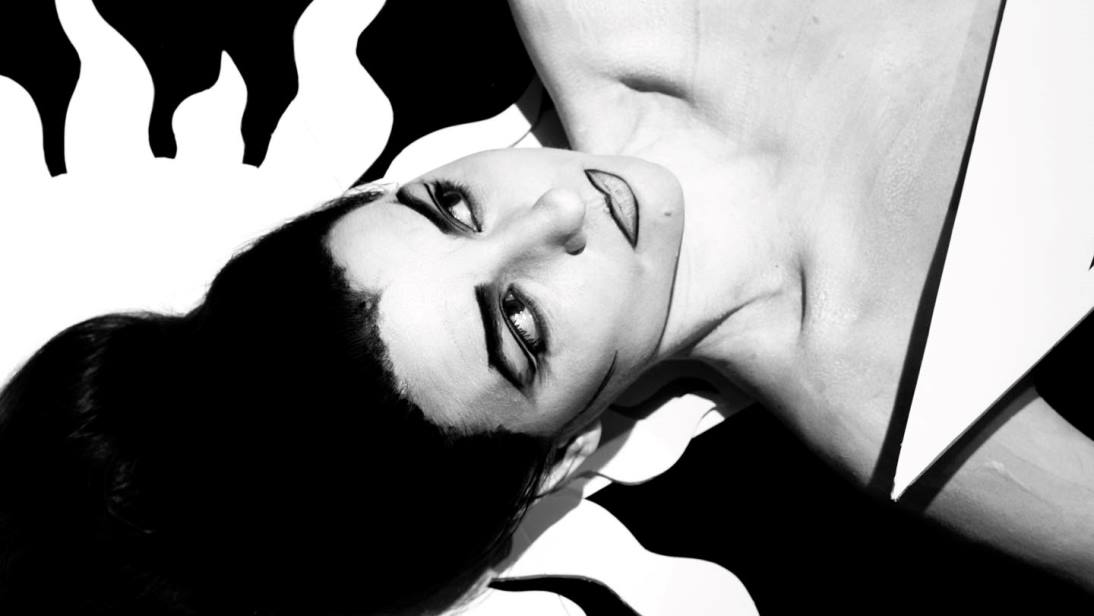
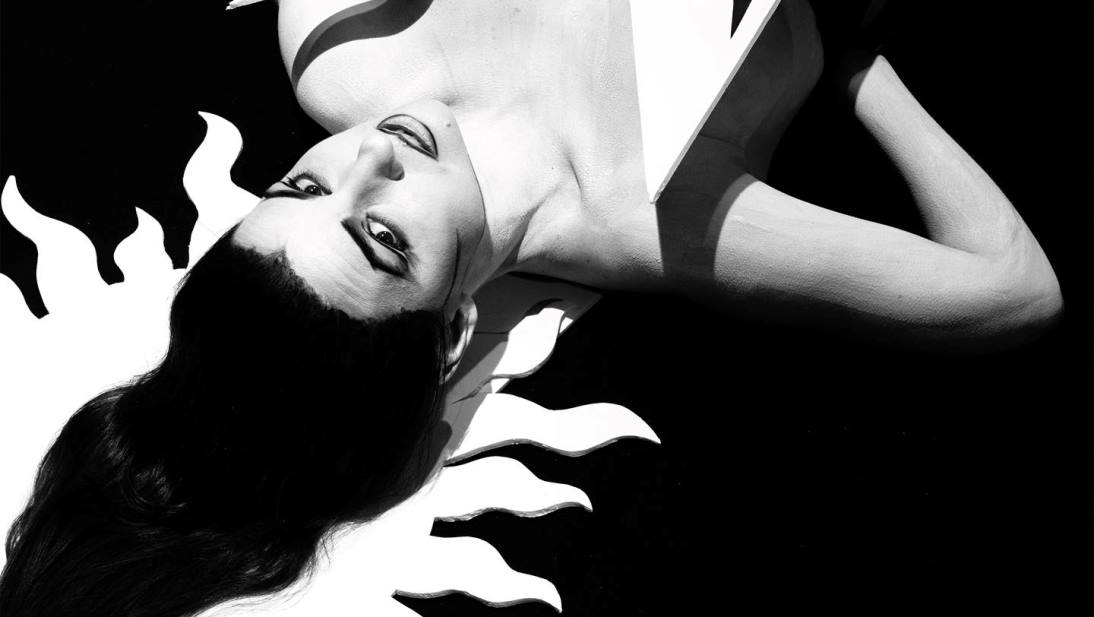
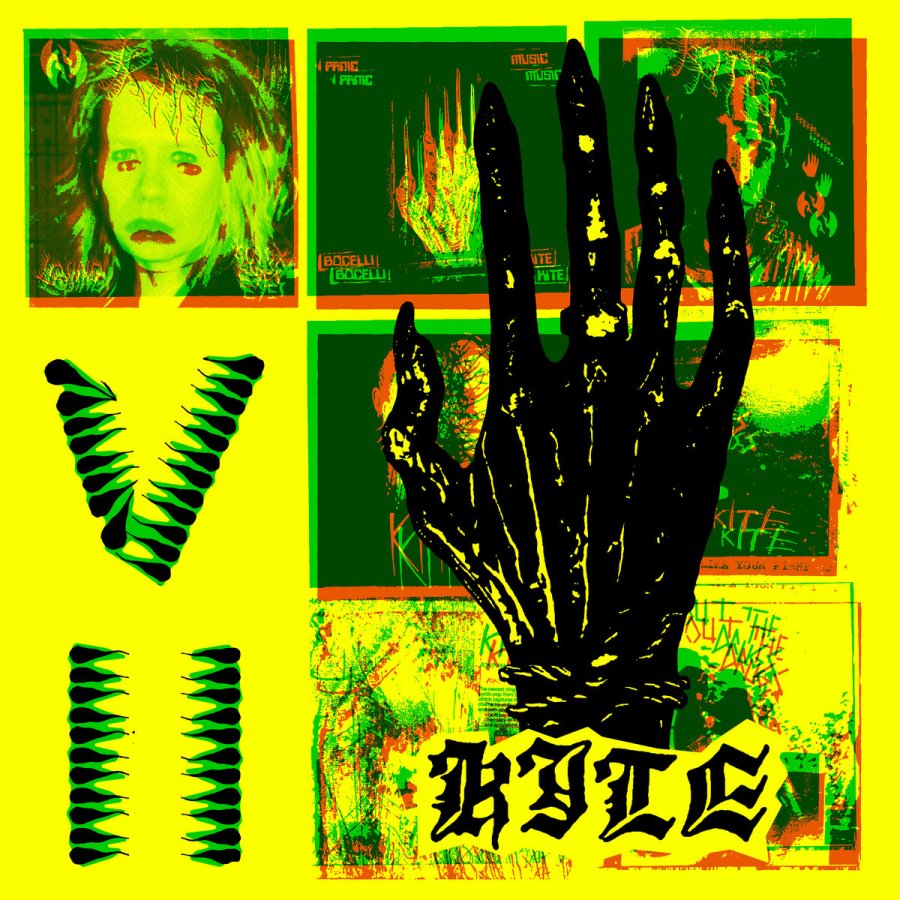

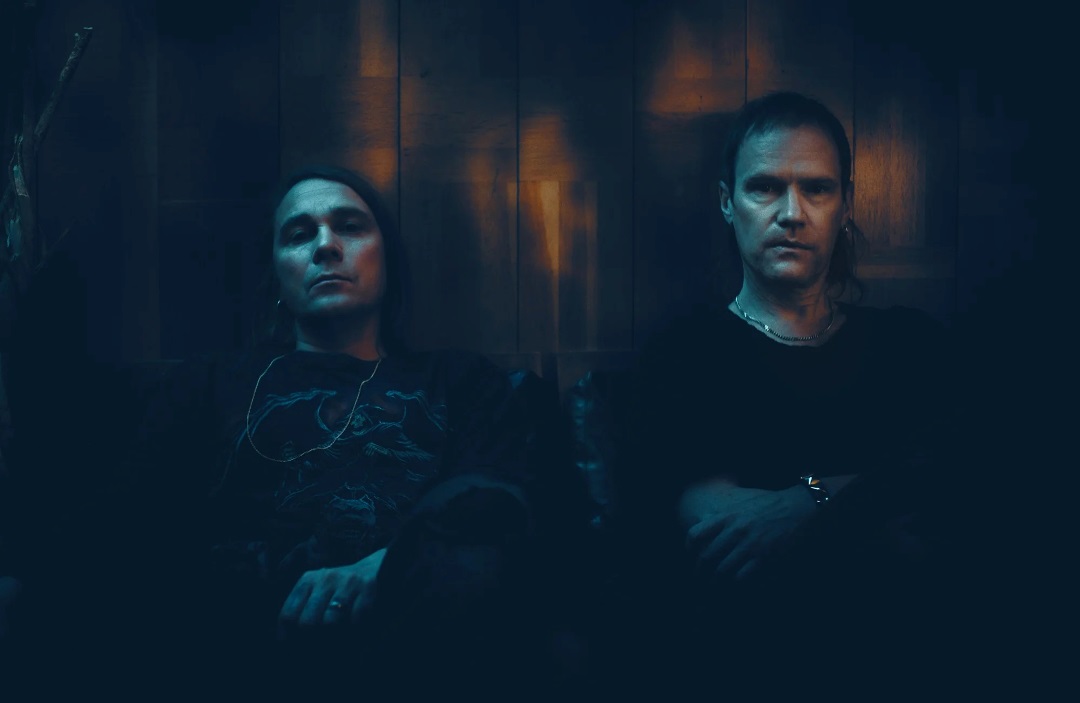
Follow Us!